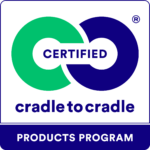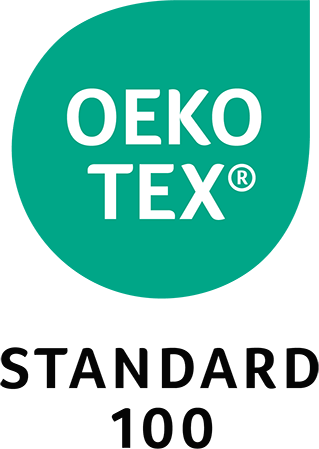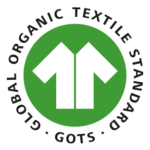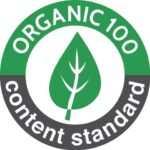Honest
We're aware of our responsibility towards both nature and the human race.
Ecological
We focus on sustainability out of a sense of conviction, and we treat environmental resources with care.
Certified
We are regularly certified by independent and supranational monitoring bodies.
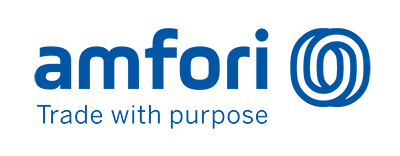
Amfori
We are a member of the Amfori Business Social Compliance Initiative (BSCI). This means that besides committing ourselves to high social standards and sustainability, we also ensure compliance with social and labor laws by auditing our production partners. The Amfori BSCI Code of Conduct is based on the UN Declaration of Human Rights and ensures compliance with international core labour standards (no child labour, a level of high occupational safety). 100% of our main production sites are regularly audited through amfori Business Social Compliance Initiative (BSCI).
Cradle to Cradle® Certified
OEKO-TEX®
95% of our textile products are awarded the STANDARD 100 label, which means that all of that item's components, including threads, buttons and other accessories, have been tested for harmful substances and that the article is harmless to human ecology. The test is carried out by independent OEKO-TEX® institutes. In many cases, the limit values for STANDARD 100 exceed legal requirements. The OEKO-TEX® criteria catalogue is constantly being expanded to include new scientific findings.
Global Organic Textile Standard
When you buy a GOTS-certified product, you are buying ecologically sound clothing.
Chemical substances contained in textiles must meet certain criteria for environmental suitability and health safety. Toxic heavy metals, formaldehyde, functional nanoparticles or genetically modified organisms are prohibited, as are accessories made of PVC, nickel or chrome.
The use of water and energy must also be documented along the supply chain in order to be able to improve the environmental impact in this area, which is particularly relevant for textile production.
At the same time, social conditions must meet the minimum criteria of the International Labour Organisation (ILO). In addition, certain limits apply to residues so that workers are protected.
Organic 100 Content Standard
We are OCS-certified. OSC stands for Organic Content Standard and provides a transparent, consistent and comprehensive independent assessment and verification of the organic fibre content. The OCS blended logo (min. 5% organic material) or the OCS 100 logo (min. 95% organic material to 100% organic material) is used, depending on the percentage of organic material in the certified goods. This allows us to record the exact proportion of organic material in a product and track it through the production chain.
Better Cotton Initiative
As part of the Better Cotton Initiative , one of the things that farmers are trained to do is produce cotton in an environmentally-friendly way and in doing so increase their income. This initiative complements other standards for sustainable cotton. Better Cotton can be produced in larger quantities than organic cotton, avoids a complex separation process and is easier to integrate into our supply chains.
Better Cotton Initiative
“Cotton made in Africa”, an initiative of the Aid by Trade Foundation, is one of the world's leading standards for sustainably produced cotton. Since 2005, the initiative behind the seal has been committed to protecting the environment, improving working and living conditions for small farmers and for workers in ginning plants. It thus contributes to improving the social, economic and ecological conditions of cotton production in Africa. By establishing partnerships with textile companies, sustainably produced cotton is in targeted demand and marketed with the “Cotton made in Africa” seal.
Cotton plays a key role in combating poverty in sub-Saharan Africa: in many countries in the region, income from the sale of cotton accounts for half of the income of smallholder farmers and their families. The potential of the fiber to make a significant contribution to economic development and poverty reduction. The aim is to help small farmers in Africa to help themselves through trade instead of donations, to improve their living and working conditions and to promote the protection of our environment. To ensure the implementation of the standard and the worldwide processing of the certified raw material, “Cotton made in Africa” works with an extensive network in the countries where the cotton is grown, numerous partners along the textile value chain and governmental and non-governmental organizations.
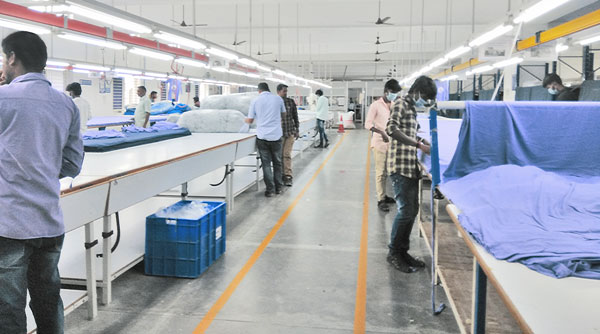
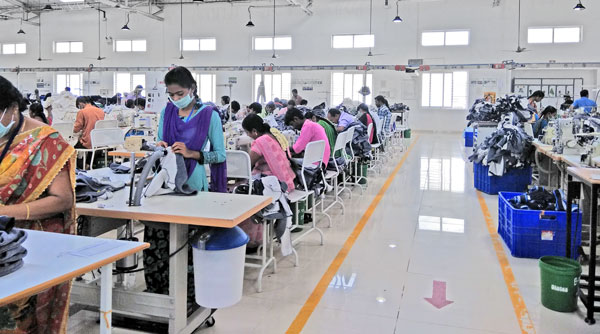
In garment production in Tirrupur, southern India.


